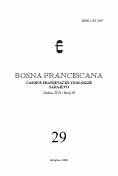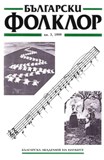
THE CRITIQUE OF THE SYMBOLICAL IN THE PHILOSOPHY OF JOHN ZERZAN
KRITIKA SIMBOLIČKOG U FILOZOFIJI J. ZERZANA
In this article we have tried to give a short account of the philosophy of John Zerzan, i.e. his critique of the symbolical, and to point out its importance and possible implications. In fact, the primary target of Zerzan’s philosophy is culture and its contribution to the human self-alienation; the function of the symbolical is seen in this wider framework. The main source of human self-alienation lies in human desire for domination over nature. This desire has led to the loss of the primeval harmony between man and nature. The role of the culture and its symbolical dimension is to try to fi ll the gap which appeared in the human soul after this great loss of primeval harmony. However, in Zerzan’s view, this is something that culture, which is by its nature something artifi cial, is not able to achieve and, consequently, we are witnesses of this today as the contemporaries of an almost complete destruction of nature through human technology and of an attempt to close off human spirit to the outside world through the world-view and philosophy of post-modernism and its reductive emphasis on the language as the only reality.
More...
